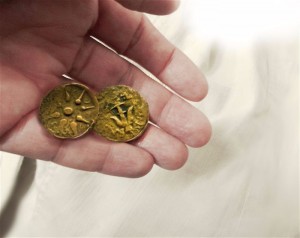 In the rare moments we are quite honest with ourselves we, followers of Jesus, sometimes admit that many of our Master’s statements don’t actually make any sense. I am referring to sayings like “man’s life does not depend on the abundance of his possessions” (Luke 12:15), “everything is possible for one who believes” (Mark 9:23), “whoever obeys my word will never see death” (John 8:51), and the like. They sound completely detached from our daily experience, which teaches us quite the contrary. Namely, that so-called “quality of life” is in direct proportion to the availability of material and financial means; that faith in Christ may take us to heaven but is all too often powerless to change our earthly circumstances; and that the most devout Jesus-believers die at the same 100% rate as Muslims, Buddhists, and atheists.
In the rare moments we are quite honest with ourselves we, followers of Jesus, sometimes admit that many of our Master’s statements don’t actually make any sense. I am referring to sayings like “man’s life does not depend on the abundance of his possessions” (Luke 12:15), “everything is possible for one who believes” (Mark 9:23), “whoever obeys my word will never see death” (John 8:51), and the like. They sound completely detached from our daily experience, which teaches us quite the contrary. Namely, that so-called “quality of life” is in direct proportion to the availability of material and financial means; that faith in Christ may take us to heaven but is all too often powerless to change our earthly circumstances; and that the most devout Jesus-believers die at the same 100% rate as Muslims, Buddhists, and atheists.
To resolve the discrepancy between the plain meaning of the texts and our experience of reality, we usually come up with sophisticated hermeneutical tricks. We believe in Jesus all right, but to make any sense of his teaching one has to be a trained theologian, like our priests, pastors, or Messianic rabbis. Of course, it was with trained theologians that Jesus clashed the most, and it was simple men that he addressed most of the time; but these facts are, again, too inconvenient, so let’s just leave them aside, goes our reasoning.
How about another solution to the problem? What if Jesus’ understanding of life, death, and reality itself is radically different from our own? And what if adopting his worldview is an indispensable prerequisite for making sense of his teaching?
Consider the story of the widow whom Jesus singled out as the most generous giver to the temple treasury (Luke 21:1–4). In his opinion, she gave  more than all the rich people who passed by the treasury before her. Yet she gave only two small copper coins! In fact, we would say she gave very little—perhaps less than anyone. But in Jesus’ view, she gave more than anyone, and he chose to tell his followers about it. Why? To startle them again with his knowledge—in that case, knowledge of the fact that those two coins was all the poor widow had?
more than all the rich people who passed by the treasury before her. Yet she gave only two small copper coins! In fact, we would say she gave very little—perhaps less than anyone. But in Jesus’ view, she gave more than anyone, and he chose to tell his followers about it. Why? To startle them again with his knowledge—in that case, knowledge of the fact that those two coins was all the poor widow had?
Certainly not! His goal was, and is, to reveal to us another reality—that of God and his rule, or kingdom. It is a spiritual reality, which, while unseen, is the ultimate one, because it is not temporal but eternal. Given the fact that the time we have left to “hang around” is not a few decades, but uncountable millions of years, don’t you think it’s wise to consider it?
In that ultimate reality, little is much when God is in it; the first are finding themselves to be last, and the last first; the sorrowful keep rejoicing; the poor make many rich; and those who have nothing possess everything. It is an inverted reality, from our point of view: its laws run contrary to all we know from our senses and learn in school. But that simply means that, in the words of Dallas Willard, “humanity is routinely flying upside down” (see his Divine Conspiracy).
That’s bad news. But we need to hear and absorb it if we are to receive the good news. And the good news is that God is more than willing to correct our thinking. The Cross made it possible. The question is, will we let him do so?
Alexander Goldberg